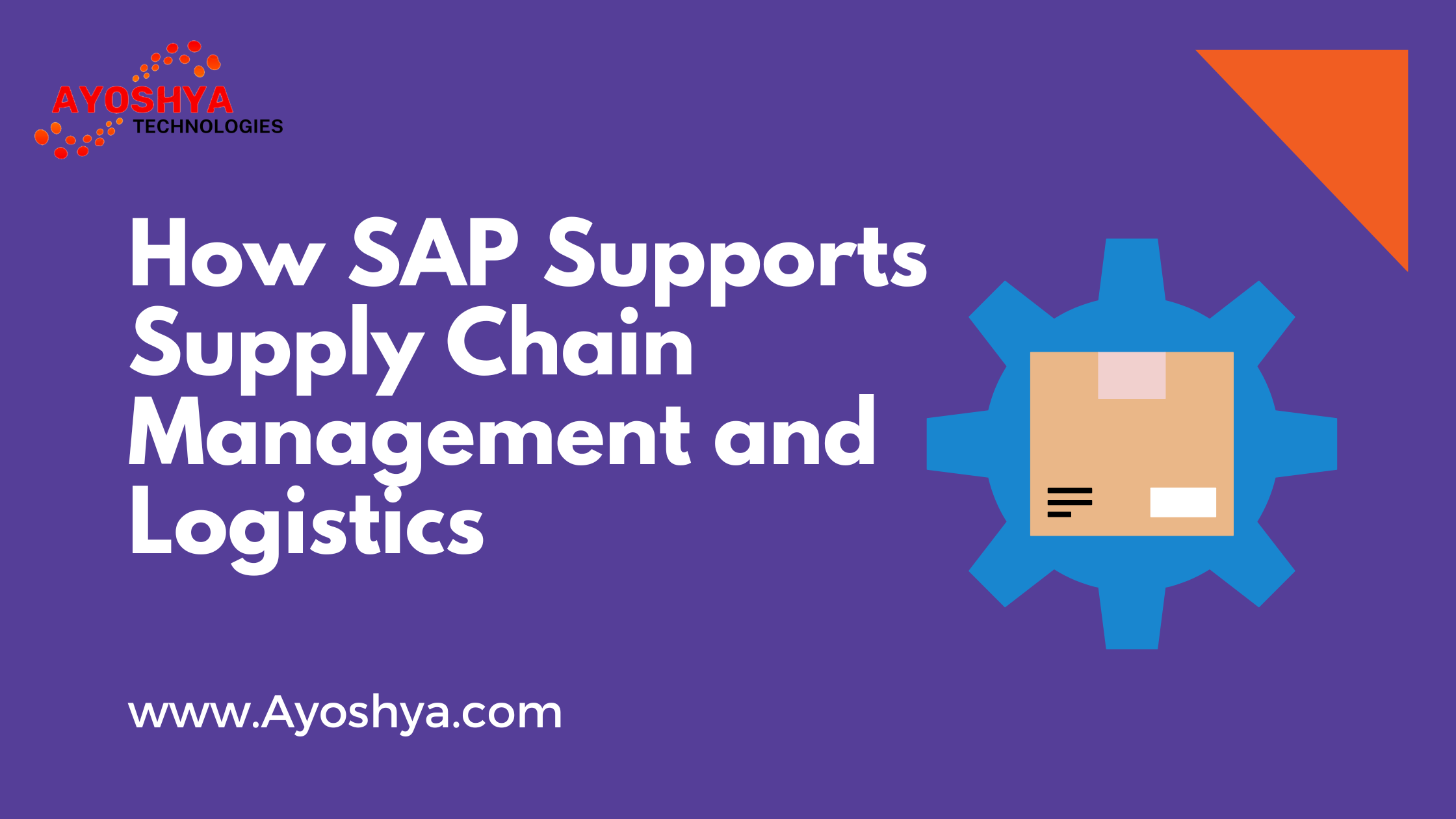How SAP Supports Supply Chain Management and Logistics
How SAP Supports Supply Chain Management and Logistics
In the fast-paced world of business, supply chain management and logistics play a critical role in ensuring the smooth flow of goods and services from the point of origin to the end customer. To stay competitive and meet customer demands, organizations need efficient and agile supply chain processes. SAP, a global leader in enterprise software solutions, offers a suite of powerful tools designed to support and optimize supply chain management (SCM) and logistics. In this article, we will explore how SAP solutions enable businesses to streamline their supply chain operations and gain a competitive edge.
Introduction to SAP and Supply Chain Management
SAP is renowned for its comprehensive suite of enterprise resource planning (ERP) solutions that cover various business functions, including finance, human resources, sales, and procurement. In addition to ERP, SAP also provides specialized solutions for supply chain management and logistics.
Supply chain management involves the coordination of all activities related to the production, sourcing, and distribution of goods and services. Efficient chain management is crucial for minimizing costs, reducing lead times, optimizing inventory levels, and meeting customer demands.
The Role of SAP in Supply Chain Management
Streamlining Procurement
SAP solutions streamline the procurement process by automating purchase requisitions, purchase orders, and supplier evaluations. This ensures efficient sourcing of materials and services while maintaining supplier quality and compliance.
Inventory Management and Optimization
SAP provides tools for real-time inventory tracking, demand forecasting, and replenishment planning. This helps organizations maintain optimal inventory levels, reducing holding costs and stockouts.
Demand Forecasting
Accurate demand forecasting is vital for aligning production and distribution activities. SAP solutions use advanced analytics and machine learning to predict demand patterns, enabling better inventory planning and resource allocation.
Distribution and Logistics
SAP supports efficient distribution and logistics management by optimizing transportation planning, route optimization, and shipment tracking. This improves delivery timelines and reduces transportation costs.
Warehouse Management
SAP Extended Warehouse Management (EWM) offers advanced capabilities for warehouse operations, including bin management, wave picking, and cross-docking. This enhances warehouse efficiency and accuracy.
Supplier Collaboration
SAP Ariba facilitates collaboration with suppliers, enabling electronic sourcing, procurement, and contract management. This streamlines the procurement process and strengthens supplier relationships.
Key Benefits of Using SAP in Supply Chain Management
Enhanced Visibility and Real-Time Insights
SAP solutions provide real-time visibility into supply chain activities, allowing organizations to monitor operations, identify bottlenecks, and respond to disruptions promptly.
Improved Efficiency and Productivity
Automating supply chain processes with SAP reduces manual tasks, leading to increased efficiency, reduced errors, and higher productivity.
Cost Reduction and Savings
Optimized inventory levels, efficient procurement, and streamlined logistics result in cost reductions and savings for organizations using SAP.
Agility and Adaptability
With SAP’s agile supply chain solutions, businesses can quickly respond to market changes, demand fluctuations, and supply disruptions.
Risk Management and Resilience
SAP enables supply chain risk management by providing early warning systems and contingency planning tools, ensuring business continuity.
SAP Solutions for Supply Chain Management
SAP S/4HANA Supply Chain
SAP S/4HANA Supply Chain is an intelligent ERP suite that integrates various supply chain processes for end-to-end visibility and control.
SAP Integrated Business Planning
SAP Integrated Business Planning (IBP) is a cloud-based solution that supports integrated supply chain planning, demand sensing, and response management.
SAP Ariba
SAP Ariba is a procurement and supplier collaboration platform that enhances sourcing, procurement, and supplier relationship management.
SAP Extended Warehouse Management (EWM)
SAP EWM is a comprehensive solution for advanced warehouse management, enabling efficient inventory handling and order fulfillment.
Integration and Data Exchange in SAP SCM
Integration with ERP and CRM Systems
SAP SCM solutions seamlessly integrate with SAP ERP and SAP Customer Relationship Management (CRM) systems, creating a unified platform for end-to-end chain management.
Data Connectivity and Interoperability
SAP offers data integration tools that enable smooth data exchange between SAP and non-SAP systems, ensuring interoperability and data consistency.
Challenges and Considerations
Implementation Complexity
Implementing SAP SCM solutions may involve complex configurations and customizations, requiring careful planning and expertise.
Data Security and Privacy
As supply chain data involves sensitive information, organizations must prioritize data security and privacy measures.
Change Management and Training
Adopting new SAP solutions requires proper change management strategies and employee training to ensure successful implementation and user adoption.



